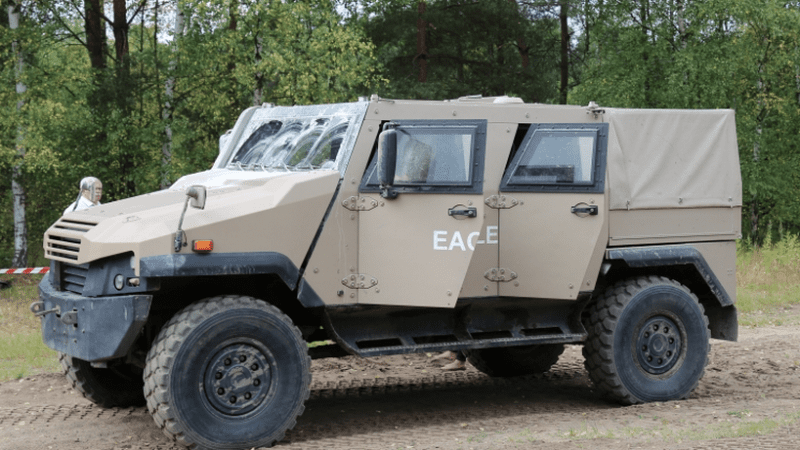
Eagle – Light Armoured Vehicle Proposed For The Polish Special Forces
Eagle V vehicle, manufactured by the General Dynamics European Land Systems company, is one of the solutions which may be acquired by the Polish Army within the scope of the Pegaz programme. The aim of the initiative is to acquire a number of proper multi-purpose vehicles for the Polish special forces.
The Eagle vehicle’s roots are dated back to the late 1990’s, and the vehicle itself is closely related to the US made HMMWV cars. Starting from the variant IV, Eagle’s manufacturer – the MOWAG company, overtaken by General Dynamics – decided to use its own solutions. Since 2003, the company has been offering its own, original design which utilized some elements of the DURO light truck.
Danish and German armed forces were the first ones which started to use the new vehicles, introduced into service between 2003 and 2006. Starting from 2010, development process pertaining the latest version has been carried out. The new vehicle is referred to as Eagle V. In comparison with its predecessors, the new vehicle offers enhanced level of protection for its crew.
Eagle V, in its 4x4 variant, weighs 6700 kg, while the full weight of the vehicle, along with the equipment and four or five soldiers on board is close to 10 000 kg. The load capacity is as high as 3300 kg.
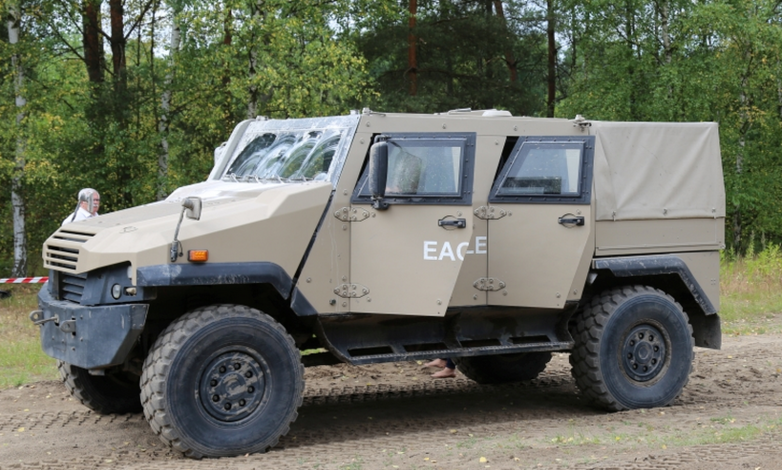
The vehicle is powered by a six-cylinder Cummins ISB 6.7 E3 245 diesel engine, with 184 kW of power output. The engine meets the requirements of the Euro III norm. Top speed of the vehicle is 110 kph on the road, while the fuel tank capacity makes it possible to cover a distance of 700 km. Eagle is capable of going over 60 degree slopes, and is also able to be driven with a 40 degree inclination. The vehicle’s wading depth is 120 cm without any preparation, after preparation the vehicle may cope with ca. 150 cm of water. Turning radius is 7 meters. The manufacturer indicates that utilizing an engine which is available within the civilian market, along with a gearbox which is as popular as the engine – manufactured by the Allison company – is going to reduce the operational costs for the car.
The vehicle has the following dimensions: length 5400 mm, width 2200 mm and height (without the armament) 2400 mm.
As it is stressed by the General Dynamics representatives, all of the sensitive elements of the drive-train, including the brakes or the gearbox, are to be protected from the enemy’s attempts to destroy these components. They are covered with some other elements of the frame, chassis, or they are fitted with additional covers.
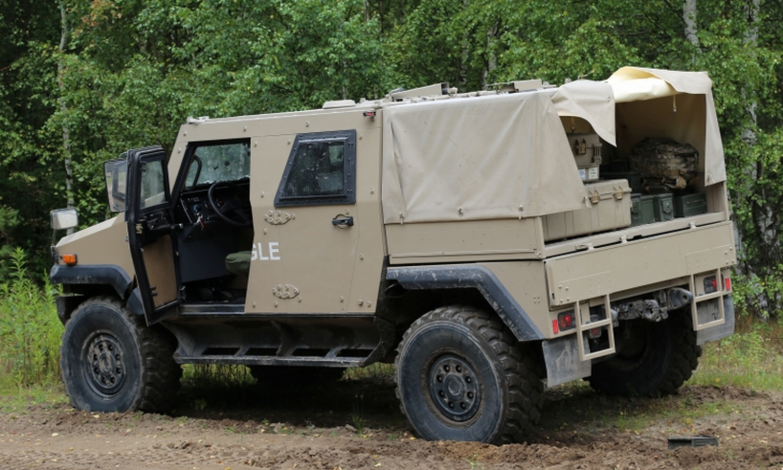
The crew protection is realized in two ways. Firstly, the vehicle features a properly double-v-shaped floor. As it is indicated by the producer, in comparison with the traditional single-v layout, the new shape makes it possible to lower the centre of mass of the car and distributes the mine or IED explosion energy to the middle and to the sides of the car, far away from the energy-absorbing seats. The new layout also reduces the area under the car that may be prone to explosion.
Moreover, protection is provided by the armour, both by the factory-installed armour, as well as by additional, custom elements. The factory-fitted armour includes a steel hull with reinforced sides. It is also possible to fit the car with additional modular armour panels on the sides and on the roof. Extra protection is provided by modules that may be fitted within the drive-train.
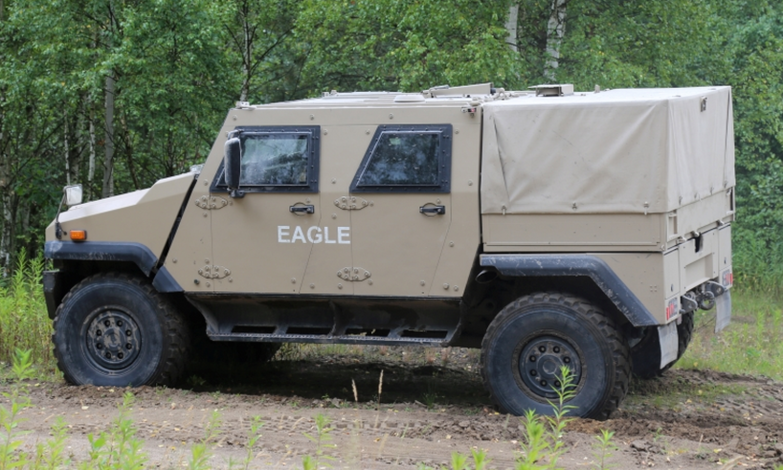
Eagle is not carrying any armament, however the vehicle is tailored to carry turrets with 7.62 or 12.7 machine guns or 40 mm automatic grenade launchers. The vehicle is available in a range of several, specialized variants, including 4x4 and 6x6 versions.
General Dynamics European Land Systems company declares that it is ready to cooperate with the Polish defence sector businesses. Process of assembling the car, should it be selected in the Pegaz programme, would be carried out, completely, in Poland. Pegaz programme assumption is that ca. 500 cars in two variants – combat and command vehicles – would be ultimately procured. Most of the multi-purpose vehicles for the Special Forces are to be used by the air cavalry, armoured and mechanized elements, and, the Special Forces (with the last component utilizing 100-200 examples of the new vehicle).
Swiss, Danish and German Armies are currently using the Eagles operationally. The vehicles have been used in Afghanistan by the German Bundeswehr. It is estimated that the vehicles covered, in total, more than 1 million kilometres, during their Afghan deployment.
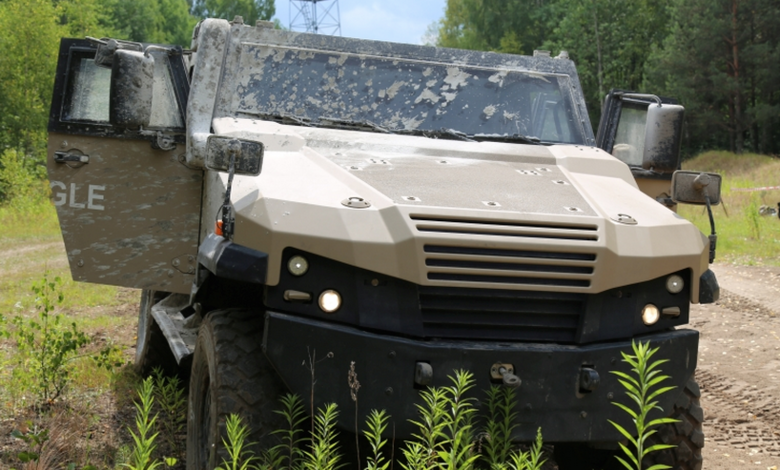
WIDEO: Defence24 Days 2025: Premier Defence & Security Conference in CEE